In a world where we’re embracing all kinds of different hair care routines, you no doubt have questions about the variety of products you’re using. The debate about using silicone vs silicone-free hair products is common. So, knowing details about different types of silicones in hair products can help you make the right decision.
Silicone has been around for decades and has numerous positive attributes. But some argue against its use, citing that it can ultimately damage your hair.
What Are Silicones in Hair Products?
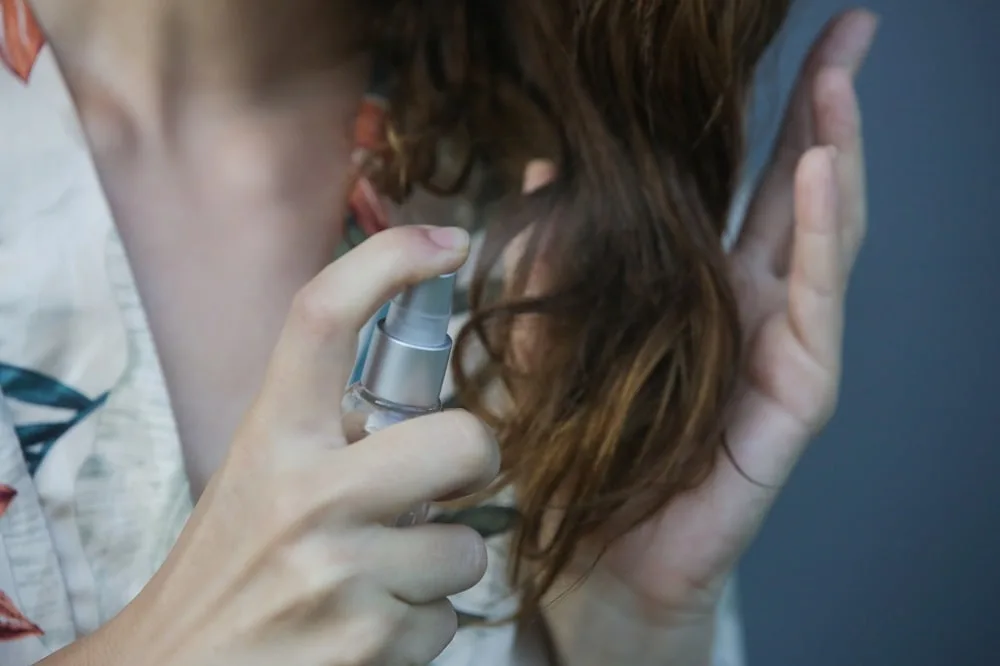
If you use any type of hair product, you may have noticed the word ‘silicone’ on the product’s label. Unless you’re a hair stylist, you probably aren’t familiar with silicones and may have wondered: what is silicone anyway?
It is a chemical work by forming a coating around the hair cuticle, which keeps it hydrated but also prevents moisture from getting in and making hair frizzy. The ability of silicone to make hair shiny and silky is what makes it a popular hair product.
Before discussing the types of silicones in hair products, you need to know what silicones are even doing there!
They all have multiple benefits for hair: conditioning, preventing frizz, smoothing, detangling, and preventing damage from hot styling tools.
Silicones primarily served as an agent to protect the hair shaft from damage. You can also use them to change the appearance of hair, giving it a shiny and smooth texture.
They have been a part of hair care products since the 1970s, when they were introduced as an ingredient in hair sprays. In the 1980s, they joined the market as an ingredient in hair serums to mend split ends.
They continued to be added to other products throughout the 1990s, such as hair dye kits.
Types of Silicones in Hair Products
The types of silicones in hair products depend significantly on what product you will use on your hair. Silicones can be categorized into two major types water-soluble and non-water-soluble.
Non-soluble ones completely cover the hair shaft and can’t be washed with water which results in buildups and some damage to the hair. Let’s look at L’Oréal, an industry leader in makeup and hair.
They’re kind enough to list the non-water-soluble silicone ingredients they use in their hair products:
#1. Dimethicone
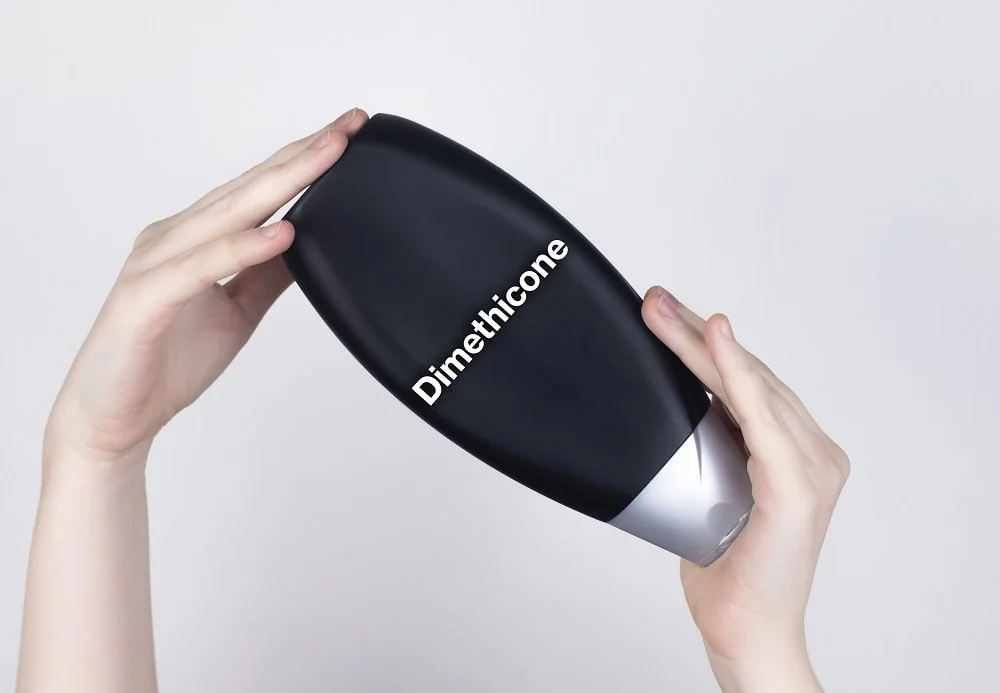
Dimethicone is a skin protectant agent found in hair conditioners. It is used to protect the hair shaft.
#2. Cyclopentasiloxane
Cyclopentasiloxane is used in different hair and personal hygiene products because it gives those products a silky feel.
As it can form a barrier, many companies will use it in products advertised as anti-frizz. However, this type of silicone is considered volatile and may dry out your hair or skin.
#3. Phenyl Trimethicone
Phenyl Trimethicone is used in products to help with their texture and spreadability. It also has the added benefit of having a high refractive index.
That means when used in your conditioners, it gives your hair an excellent glossy appearance and can be great to use if it has taken on a dullness.
#4. Amodimethicone
Amodimethicone is another silicone product that helps control frizz, operating under the same conditions as others in that it creates a barrier between the hair shaft and the environment.
#5. Cyclomethicone
Cyclomethicone is a combination of different silicone types! It contains Cyclopentasiloxane and several other types, which is considered a volatile type of silicone and can dry out the skin.
Like others, it aids in the spreadability and texture of products.
#6. Water-soluble Silicones in Hair Products
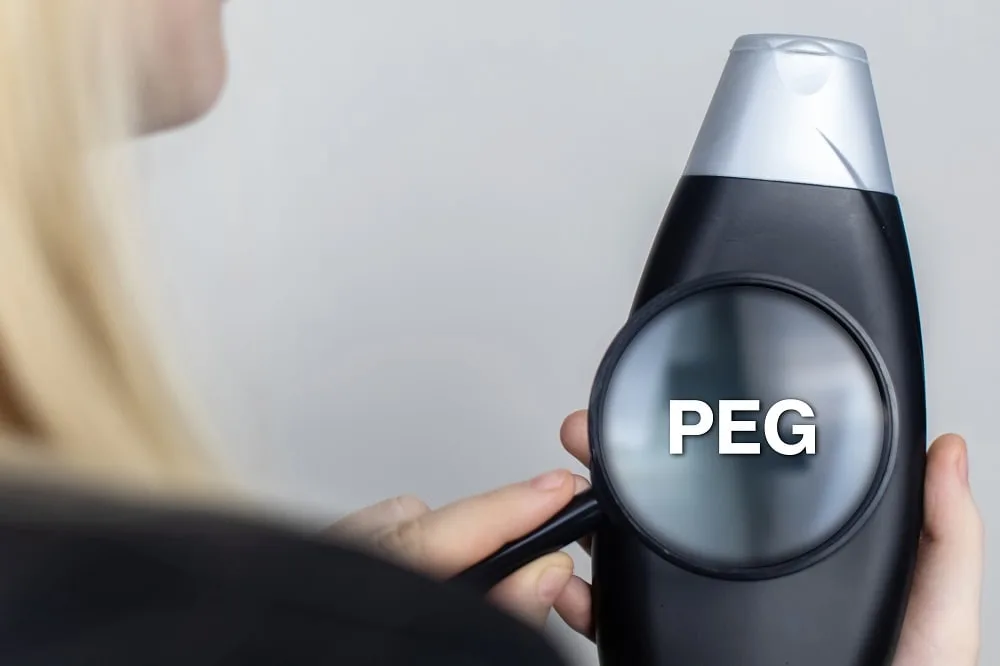
As the name suggests, these silicones can be diluted and washed out with water which makes them safer silicones to use for hair care.
Lauryl Methicone and Dimethicone Copolyols, and any other silicones starting with ‘PEG‘ are the popular water-soluble silicones used in hair products.
Pros and Cons of Silicone in Hair Products
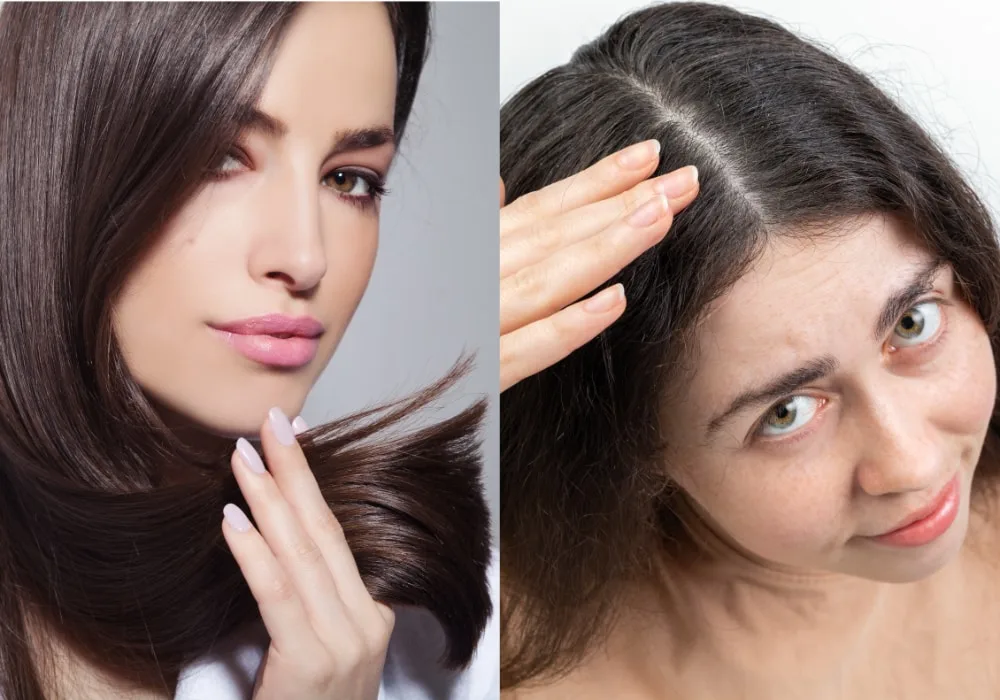
To start off, silicone is not dangerous for your hair, and there’s no science to support it. Hair and makeup brands have safely used silicone in hair and makeup products for decades.
However, that doesn’t mean that it couldn’t be damaging to your hair.
Pros
The pros of the different types of silicones in hair products are…
- They can add shine to your hair and seal it away from moisture and air.
- By adhering to the hair shaft, silicones can temporarily repair split ends and are likely what companies are referring to when they claim their conditioner can repair damaged hair.
- The ability to lock out moisture is desirable in hair products hoping to market themselves as anti-frizz, and you’ll often see silicone types listed in the ingredients on those.
- Silicones can also give your hair a lovely smoothness, which makes it feel soft to the touch.
Cons
There are some drawbacks to using silicone hair products. If you are concerned about the cons, you can use silicon-free hair products.
- Silicone wants to cling to the hair shaft, which can result in hair product buildup. Such buildup can cause your hair to look greasy and even cause dandruff, which is not an attractive look. Sometimes this is difficult to remove, but you can try a product created for this purpose.
- Another is that several types of silicone are listed as “volatile,” meaning when it comes to your hair is that it can dry your hair out in the long run. So while it might be helping as an anti-frizz agent temporarily, it can cause damage by leaching out your hair’s much-needed moisture.
Which Hair Types Tolerate Silicones Best?
Since silicones affect everyone’s hair differently, it’s important to know which ones are in the hair products you’re using so you don’t end up with a ‘hairy’ mess.
World-renowned hair stylist John Frieda says people with dry, coarse, thick, or curly hair tolerate silicones best. However, other hair stylists say curly hair might be an exception because silicones are heavy and can weigh hair down, causing curls to lose their shape.
If you have curly hair, the best way to find out if silicones work well with your hair is to simply try it. A little goes a long way, though, so start with a small amount.
What Hair Types Shouldn’t Use Silicone Hair Products?
Thin and fine hair is already more delicate and prone to breakage, so women with this hair type should avoid silicone.
The only reason to use silicone hair products is if your hair is struggling to retain moisture or if you want it to be less frizzy and negatively affected by humidity. If you could use some help with any of these issues, you’ll benefit from silicones.
How to Remove Silicone from Hair
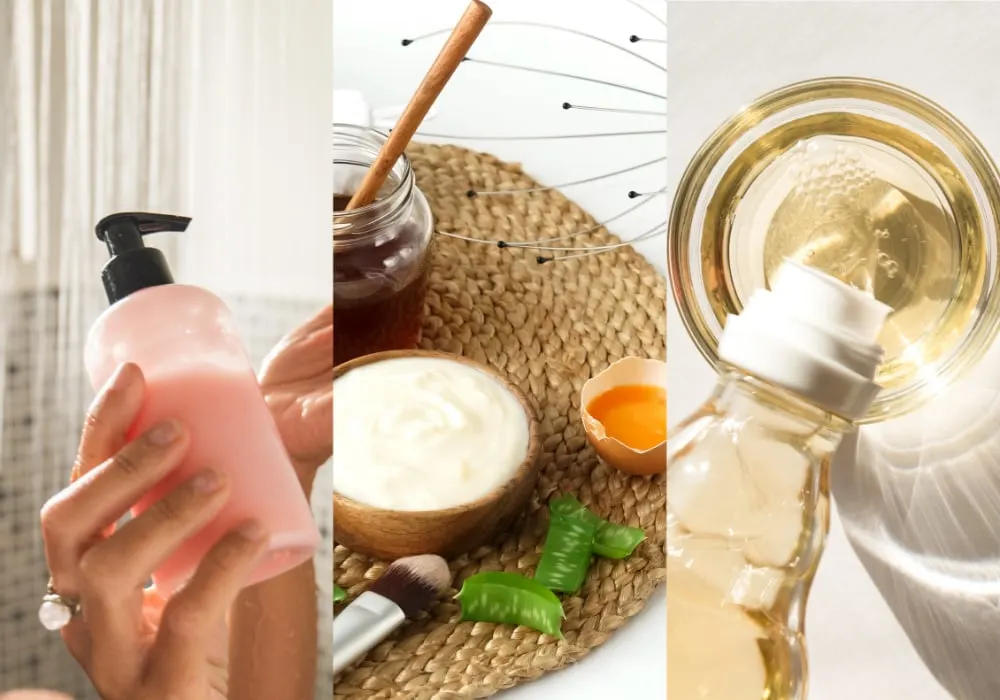
For silicone to be easily removed from your hair, you want to make sure you are only using hair products that are either evaporating silicones or water-soluble, the latter of which just means water can easily rinse it out.
When a product says ‘non-soluble,’ water can’t penetrate it. That said, simply washing your hair with water isn’t enough to remove silicones from it.
If you don’t use hair products other than your normal shampoo and conditioner, you don’t need to worry about silicone build-up. Otherwise, these are the three most common methods for removing silicone from hair:
Use a detox shampoo. These are affordable and work really well to remove all product build-up from hair. Switch out your shampoo for a detox shampoo at least once or twice a week to remove the waxy feel.
Do a hair mask. You can either purchase a hair mask or mix one up at home using one egg yolk, two tablespoons of coconut oil, and one tablespoon of honey. Leave it on your hair for about 30 minutes and then rinse it out.
Vinegar rinse. This is a hit-or-miss option and its effectiveness varies based on how much build-up you have in your hair. If you do use it, mix one part vinegar to three parts water and let it sit in your hair for at least five minutes before rinsing.
What Are the Silicone Alternatives for Hair?
There’s more than one way to get your hair feeling silky and smooth. For a natural alternative, try one of these:
- Bamboo extract
- Jojoba oil
- Lexfeel Natural
Conclusion
There are several types of silicones in hair products. Some are used to smooth hair and adjust its texture, while others temporarily repair the hair shaft.
None of these silicones in hair products will hurt you, and it’s not a toxic chemical by any means. But depending on which kind of silicone you’re using and how often you’re using it, it may dry out your hair and cause the damage you’re trying to repair.
So keep an eye out on your bottles, research the ingredients before you use them on your hair and decide which product is for you.
FAQS
No, silicone is not damaging or toxic to hair. The only annoying side effect you may experience if you don’t completely rinse it out of your hair is heavy or greasy hair, and possibly dryness.
Non-soluble silicones are the “bad” ones to watch out for. These will be listed on your hair product as dimethicone, dimethiconol, stearyl dimethicone, cetyl dimethicone, cetearyl dimethicone, amodimethicone, cyclopentasiloxane, and behenoxy dimethicone.
Yes, silicone can build up over time, weighing it down and making it feel greasy. Plus, it’s really easy to use too much, which is why it’s important to use a clarifying shampoo or hair mask regularly
